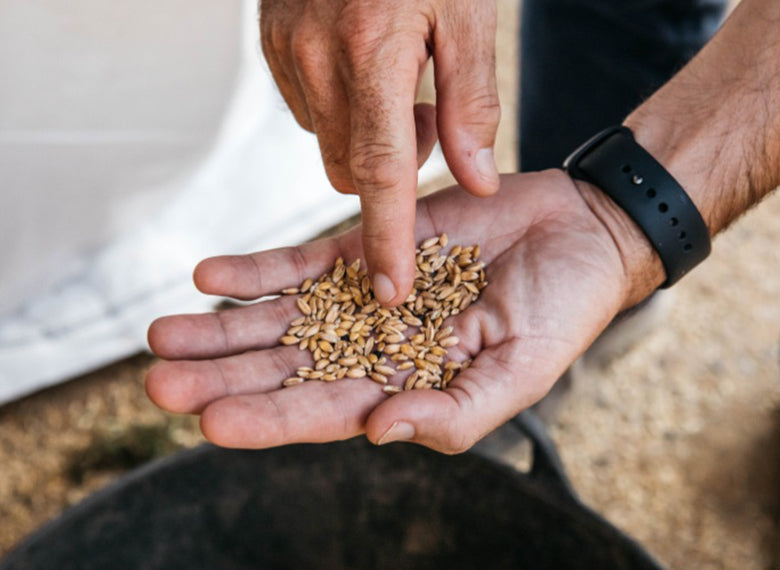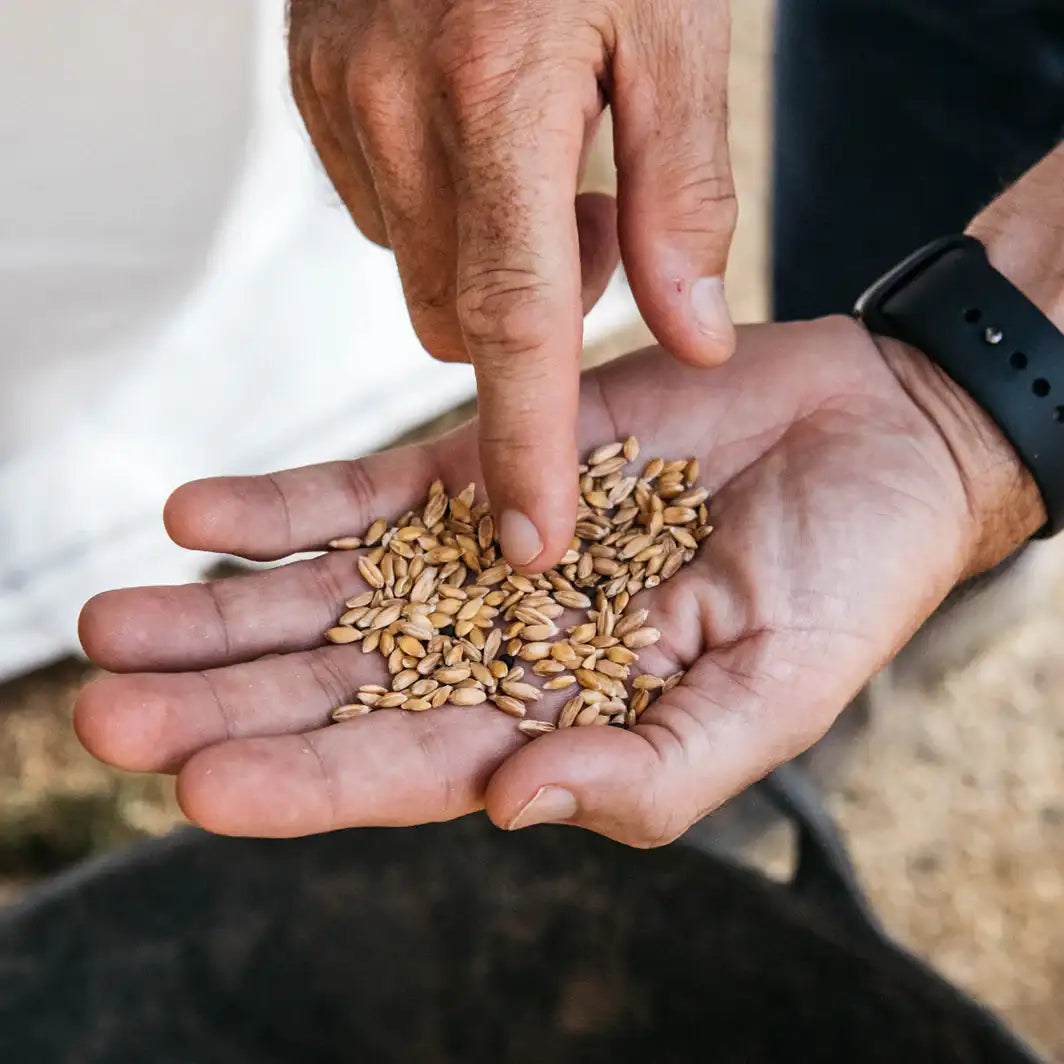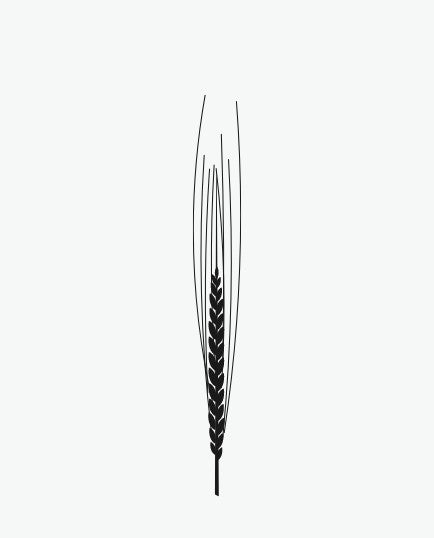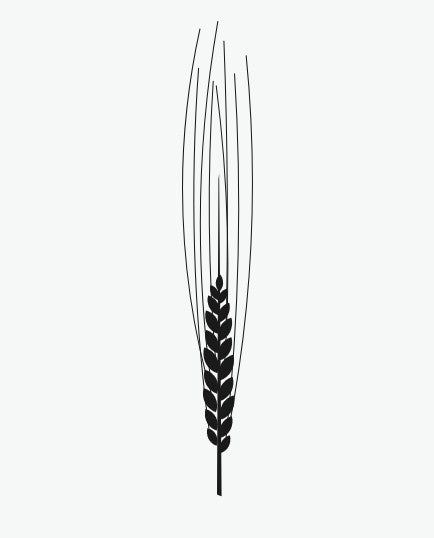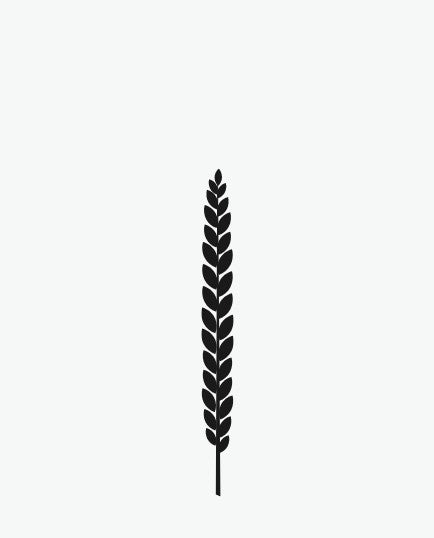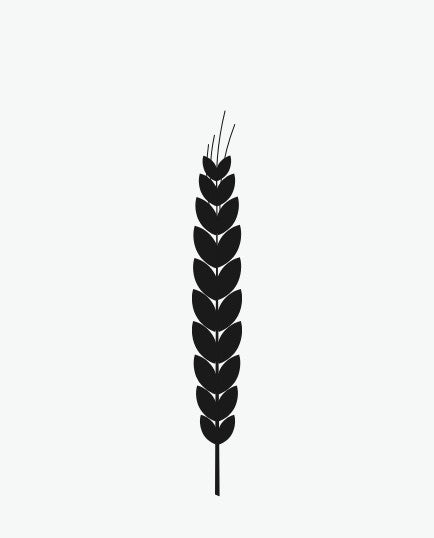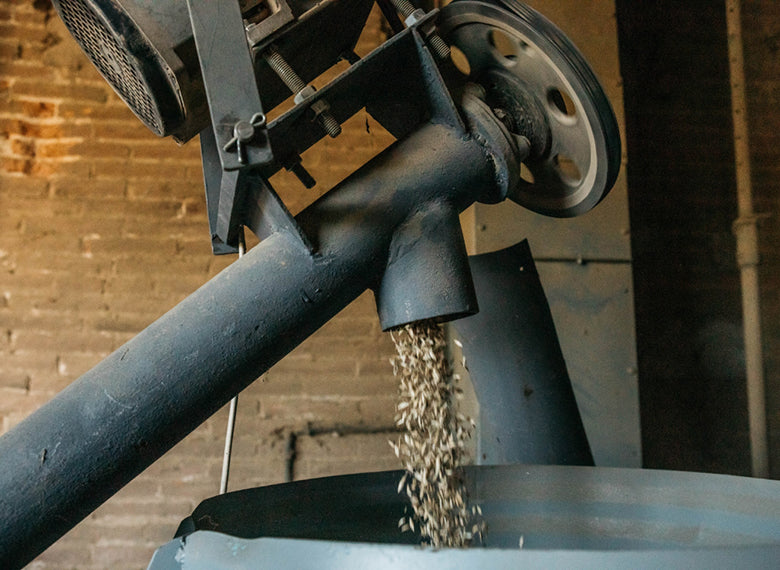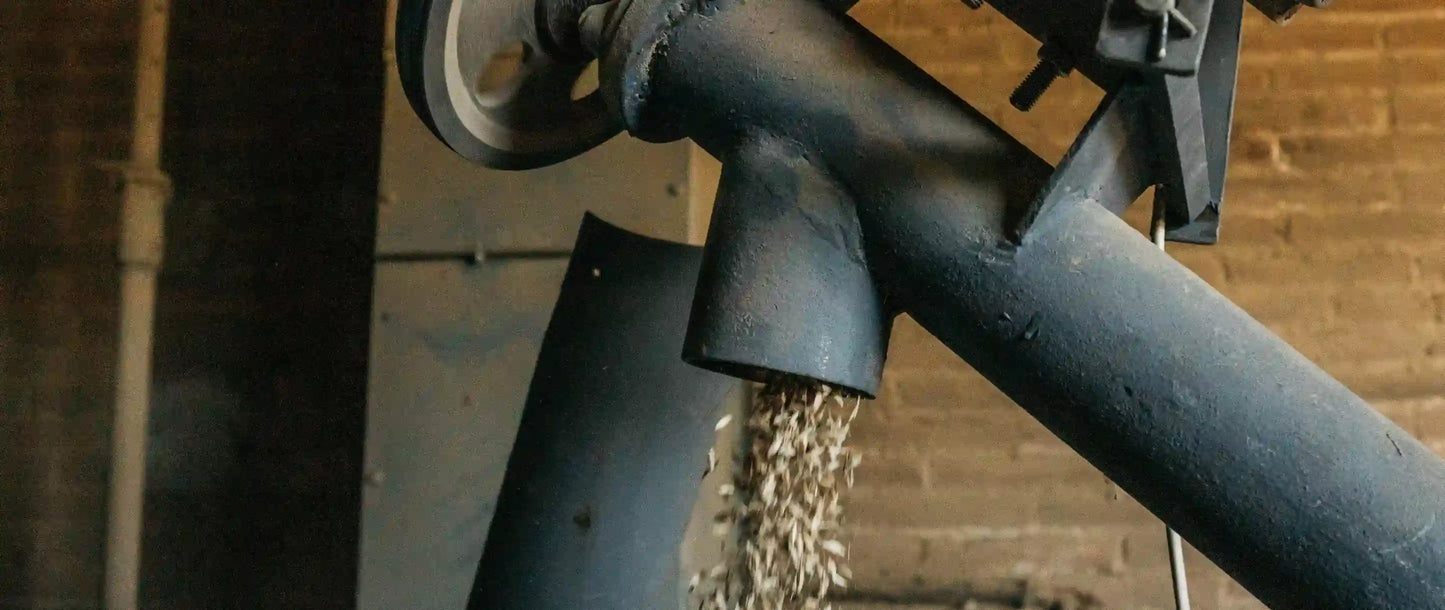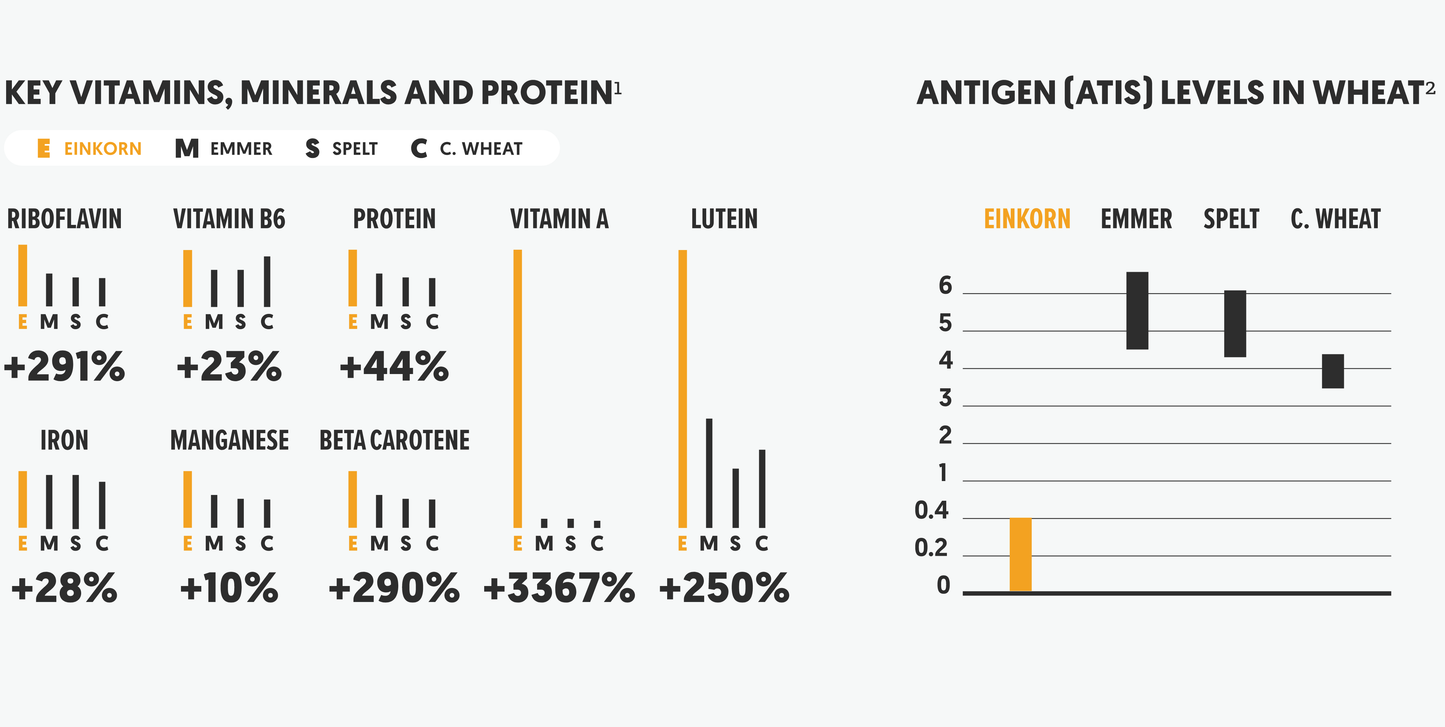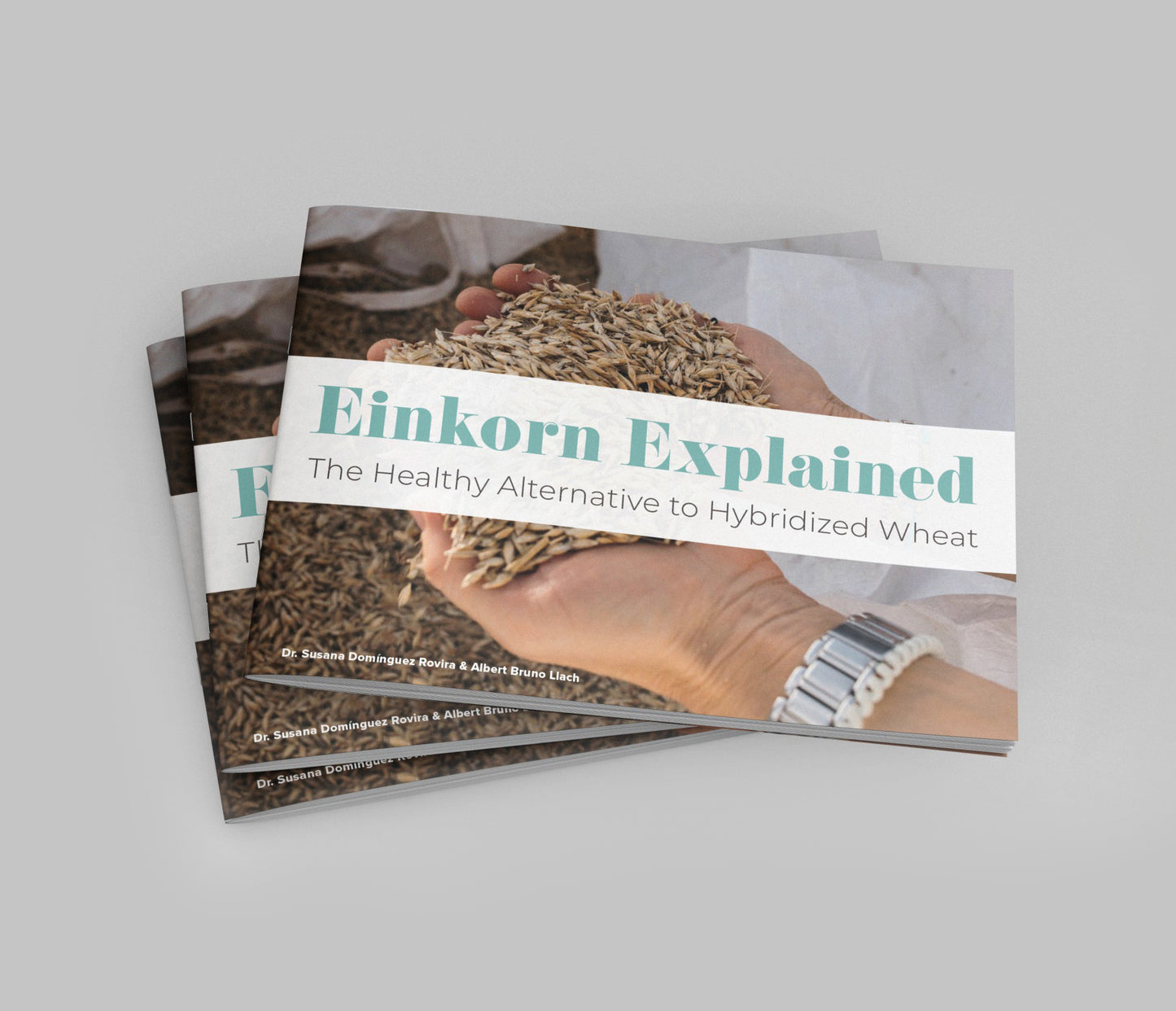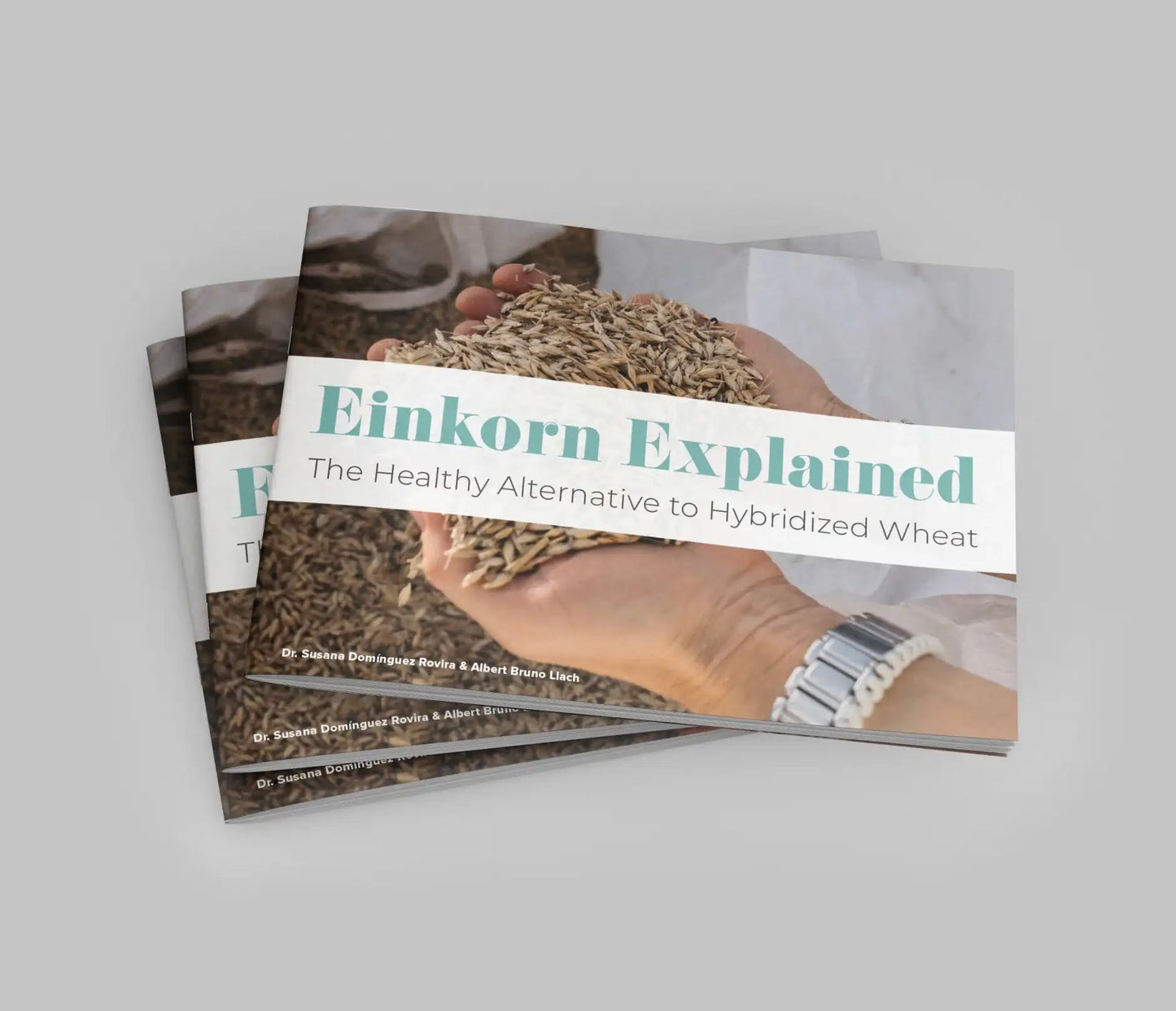The Science Behind Revival Einkorn
Earth’s first wheat—pure, nutrient-rich, and untouched for over 14,000 years.
Up to
+40%
More protein vs modern wheat
Up to
+250%
More carotenoids to neutralize harmful free radicals
Up to
10%
Daily prebiotic fiber for gut health
Up to
+300%
Higher antioxidant content for overall wellness
Up to
+46%
More vitamin E for immunity
Up to
3x
Lower chromosome count, easier on digestion
Unrivaled Nutrition,
Unchanged Gentleness
Einkorn, also known as Triticum monococcum, was first cultivated over 14,000 years ago. Despite being the first cultivated wheat, it was overshadowed by hybridized varieties seeking higher yields, relegating Einkorn to artisanal operations due to its more arduous processing. However, amidst rising concerns over gluten-related disorders and environmental challenges, Revival Einkorn reevaluates its potential. With lower antigen levels and easier digestion, Einkorn’s suitability for individuals with non-celiac gluten sensitivity and inflammatory digestive conditions should be reexamined. Its rich nutrient profile and environmental resilience make it a compelling choice for sustainable farming practices in the face of a changing climate.
The Grain That
Started it All
Einkorn, humanity’s original wheat, fueled early civilizations. Yet, in pursuit of modernization, we traded its nutrition for hybridized varieties. Our mission: restore einkorn’s rightful place.
The De-Evolution of Wheat
Einkorn, once a nourishing staple rich in protein, fiber, vitamins, and minerals, provided early humans with a reliable and delicious food source. However, wheat hybridization led to increased gluten levels and decreased nutritional value. Returning to nature’s original grain allows us to rediscover its true wealth and nourish ourselves with a healthier option, just as our ancestors did.
Einkorn vs. other wheats
Ancient superiority meets modern alternatives
Before gluten
was a problem
Einkorn’s gluten is simple and truly unique, containing only the single ‘AA’ pair of chromosomes, making it far easier to digest than other wheats. In addition, it’s high fiber and low starch content aid in gut health and support healthy inflammation balance. Revival Einkorn is ideal for people with gluten sensitivity or those who just like to avoid the bloated feeling associated with modern wheat products. Although not recommended for those already diagnosed with celiac disease, recent studies show that einkorn contains very few inflammatory properties.
After years of research, testing, and consultation with dietitians, food scientists, and consumers—we established a consistent and meaningful way to label our products highlighting einkorn’s ‘AA’ good gluten. Our Certified Gluten AA seal clearly calls to attention what makes Revival Einkorn’s gluten uniquely suited to human digestion and health. If you would like to learn more, please visit the complete Einkorn White Paper.
Einkorn
Explained
The Healthy Alternative to Hybridized Wheat
Despite being Earth’s first wheat, einkorn’s scientific exploration is recent. Dr. Susana Domínguez Rovira and Albert Bruno Llach’s white paper, ‘Einkorn Explained: The Healthy Alternative to Hybridized Wheat,’ delves into its history, nutrition, and significance for today’s diet.
More information
German documentary on regenerative agriculture and soil health. Check out video
Einkorn genomics sheds light on history of the oldest domesticated wheat. Check out document
Study shows nutritional benefits in regenerative agriculture crops. Check out document
Archaeobotanical evidence reveals the origins of bread 14 400 years ago in northeastern Jordan. Check out document
In Vivo Effects of Einkorn Wheat (Triticum monococcum) Bread on the Intestinal Microbiota, Metabolome, and on the Glycemic and Insulinemic Response in the Pig Model. Check out document
A Khorasan wheat-based diet improves systemic inflammatory profile in semi-professional basketball players: a randomized crossover pilot study. Check out document
In Defense of Food: A Reader’s Manifesto. Check out document
